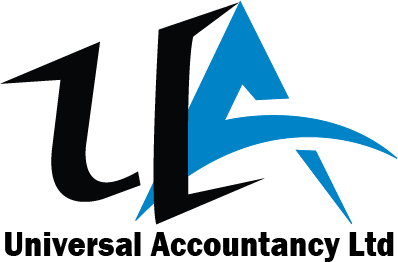We are professional accountants for sole traders, freelancers and self employed business owners.
Self-employment and contracting is becoming a popular option in the digital world that we live in today.
But not every freelancer or contractor knows how to manage their personal and business accounts, and mismanagement of these can lead to headaches with HMRC.
We’ve gathered together some questions so that you can make the best decision for your finance needs.
Do I Need An Accountant?
Depending on the age and type of your business, you may not be earning much money yet.
This can make the idea of using an accountant seem redundant, but it’s a common misconception for contractors to think that they wouldn’t need one.
You will feel more comfortable knowing that your accounts and taxes are being handled properly.
Can I Do Self-Assessment Myself?
Yes. If you are working for yourself, you can submit your self-assessment on time without help.
However, not every contractor has the time to do it, and tax issues that crop up can make you feel like it’s not something that you can do by yourself.
This is where you would hire in Universal Accountancy to assist you every step of the way.
What Do We Do for Self-Employed, Sole Traders and Freelancers?
Based in Hertfordshire, we are a dedicated and professional accountants for IT contractors, offering accountant services and helping our clients to reach their full potential.
We pride ourselves on our proactive approach with our clients, keeping them updated on their finances so no questions even need to be raised.
All of your accounts, tax obligations and any other financial requirements are delivered on time and in an efficient manner – we are nothing if not professional.
We can assist you with all personal and business tax needs, from accounts preparation to VAT advice and help.
Key Issues Self Employed and sole traders face
As a contractor, there are several key issues that you will face from tax returns to dealing with expenses.
We’ve broken down the key issues you face.
What is a Tax Return?
A tax return is a form that you submit to make an annual statement of income and personal circumstances.
This is used by the authorities to assess how much tax you should be paying and whether you have been paying enough.
What is Self Assessment?
Self-assessment is the system that HMRC uses to collect your income tax.
As a business owner earning enough to be self-employed, you would submit your self-assessment yearly so that you are paying the correct tax.
What Items are Expenses?
As a self-employed person, there is a wealth of expenses that you could claim in the course of your job.
At Universal Accountancy, we can help you to manage these expenses and ensure that you are claiming the right amount.
You can’t subtract every self-employed expense that you incur, and the ones that you can claim for include:
- Office expenses
- Business premises
- Travel
- Subsistence
- Accommodation
- Insurance
- Stock and materials
- Staff costs.
Expenses aren’t always easy to track, but as we an established accountants for freelancers, we can advise you on what you should be claiming and what you cannot claim.
We can also help you to put your expenses together along with your receipts to help you to manage your financial affairs.
When to Submit and Pay Tax Return
Your tax return and any money that you owe has to be sent to HMRC on time, but the timings vary for the type of tax returns. Here they are below:
- 5th October 2018 – Register for self-employment or a sole trader, not self-employed, or registering a partnership .
- Midnight 31st October 2018 – paper tax returns.
- 11.59 PM 31st January 2019 – online tax returns.
- Midnight 31st January 2019 – pay the tax you owe.
Questions about tax and self assessment
At Universal Accountancy, we often get asked more comprehensive questions about the tax system and HMRC, and some of those questions with very brief answers are below.
Tax Benefits Of Being Self Employed?
The main benefit is only paying tax on what you’ve earned, and claiming back certain expenses.
Can I Get Tax Credits When Self Employed?
You can qualify for tax credits if you are self-employed, depending on your income and hours worked.
Are Car Lease Payments Tax Deductible?
As long as your mileage used is wholly and exclusively in the remit of your business, and you don’t use any mileage for personal use.
Is The First Year Self Employed Tax Free?
There could be a long delay in paying tax, but when the bill does arrive it could cover 18m of tax and be fairly big.
How Much Can I Earn Self Employed Before Paying Tax?
The personal tax allowance is £11,500, however, you should pay Class 2 National Insurance Contributions before this amount.
How Much Tax Will I Pay On £30,000 Self Employed?
Depending on your expenses and overall income, you could be looking at £5,921 in tax and National Insurance
Are You Taxed On Cash In Hand Income?
If you are working and receiving payments for work, you must declare your income to HMRC so that they can ascertain whether you should be paying tax on it.
What Is The Self Employed Tax Allowance?
The personal tax allowance is £11,500, but it could be more if you claim Marriage Allowance or Blind Person’s Allowance
Do I Pay National Insurance When Self Employed?
Yes, most self-employed people pay Class 2 NICs if your profits are at least £6,205 during the 2018/19 tax year, or £6,025 in the 2017/18 tax year.
If you’re over this limit you will pay £2.95 a week, or £153.40 a year.
Fees and Costs
Get in touch to discuss.
Contact us
